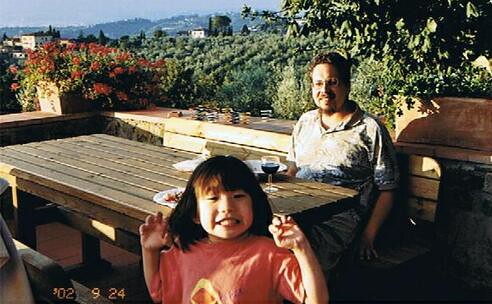So I go to turn on the tv this evening and see if anything's on, and AMC is playing Vertigo! Just starting. Excellent.
... Another Hitchcock film that I've seen before but long enough ago that a lot of it has passed out of my memory. It seems a whole lot like Rear Window, and not just because of Jimmy Stewart -- though his presence is a central part of both movies. I am liking it but not in the same way I love my favorite Hitchcock films.
posted evening of Tuesday, November 13th, 2007
➳ More posts about Vertigo
➳ More posts about Alfred Hitchcock
➳ More posts about The Movies

I'm surprised you think Rear Window is a better film than Vertigo!
I'd like to hear more. I've always thought Rear Window was one of
Hitchcock's weaker films. It doesn't stand up to repeated
viewings very well. In someways, I think the most interesting part
of the movie is the Kelly/Stewart relationship which must have been
much more interesting in the 1950's than it is now. Vertigo on the
other hand is deeply disturbing and so beautifully shot. I love
that Stewart who is generally so lovable, ala Its a Wonderful Life,
becomes so dark. Even in Rear Window he plays a good guy, if
somewhat more ambiguously. I could watch it over and over. The
brokenness of his triumph at end...It's haunting.
posted evening of November 14th, 2007 by Painterof blue

Well Rear Window I think is better primarily because its
such an overpowering visual experience -- Vertigo is
beautiful but it doesn't engage me to anything like the same
degree. I don't have any great love for Stewart as an dramatic
actor -- in Rear Window his role is highly comic, even
towards the end when the movie starts getting gripping and
suspenseful, there's still a lot of ironic detachment to
Stewart's acting; I think he pulls that off way better than the
psychosis in the second half of Vertigo, which I just did
not find at all convincing. Other bad things about Vertigo
-- the lame, campy special effects in the nightmare sequence, and
the vertiginous shots when Stewart looks down. It seemed to me like
the movie was trying to be a lot of things and not getting any of
them particularly well. Though it was of course a huge pleasure to
watch Hitchcock's visual compositions.
posted evening of November 14th, 2007 by Jeremy

I see your point about the dream sequences, but I see them a bit
differently. Hitchcock understood surrealism; he used Dali to do
the dream sequence in Spellbound. I see those sequences in Vertigo
in that light. He was pressing the boundaries of film making, just
like the surrealists were doing with art. They also sometimes used
humor to subvert norms. I think some of the campiness comes from
that. The darkness is balanced with a subtle humor. You spoke about
this in your next post. I think at the time what was subtle is
different from what is subtle now. We are all much more
sophisticated visual consumers. I also respect the experimental
nature more than anything else. The risk he took, I think elevates
the sequence even if not everything worked perfectly. I’m
also very effected by color and I loved the way he played with
color and lighting. It’s like he joined painting and film. On
the Jimmy Stewart point, if you don’t like him that much I
can see that having a major impact on how you perceived the movie.
I’m still suffering from the ill effects of a shameless
childhood crush.
posted afternoon of November 15th, 2007 by Painter of Blue

Yeah -- I like Grant much better as a Hitchcock leading man. But
really my favorite Hitchcocks are almost all in black and white. I
can see how his use of color is really beautiful -- but something
about the camera work in his black and white pictures that just
absolutely captivates me.
posted afternoon of November 15th, 2007 by Jeremy








